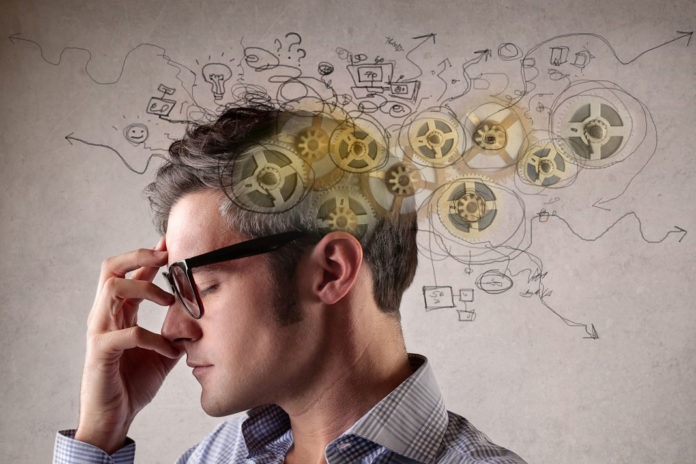Understanding how opioid use disorder affects mental health is critical, and not only for those who take opioids while simultaneously battling mental illness.
What many people don’t realize is that opioid addiction—and opioid use in general—can have an impact not only on physical but also on mental health. As such, anyone who takes opioids should be aware of the effects of opioids on mental health to preserve their mental well-being.
This article explores the link between opioid use disorder and mental health disorders, such as depression, anxiety, and post-traumatic stress disorder (PTSD). What Are Opioids?
Opioids are potent medications prescribed to relieve moderate and severe pain that cannot be alleviated by over-the-counter pain relievers, such as ibuprofen.
Although they can ease chronic pain, opioids are typically prescribed for short-term pain management due to their habit-forming properties.
Opioids can be classified into three groups based on their origin:
- Natural opioids (opiates), such as morphine and codeine, which are derived from the opium poppy
- Semi-synthetic opioids, which are produced in laboratories by synthesizing opiates (e.g., oxycodone, hydromorphone, and oxymorphone)
- Synthetic opioids, such as fentanyl, methadone, and tramadol, which are fully human-made
Regardless of the type, opioids work by interacting with opioid receptors in the central nervous system (CNS) and interrupting the transmission of pain signals between the body and the brain. While this reduces the perception of pain, opioids can also stimulate dopamine release, inducing feelings of euphoria and relaxation.
Since people are hardwired to repeat behaviors that release dopamine and lead to pleasure, opioids have a high potential for abuse and addiction. To minimize the risk of opioid addiction, it’s crucial to take these drugs precisely as instructed by a doctor.
What Is an Opioid Use Disorder?
Opioid use disorder (OUD) is a brain disease characterized by compulsive opioid use despite their damaging effects, which is also commonly called opioid addiction. In other words, it is an illness that makes it incredibly hard for people to control, quit, or reduce their opioid use.
Contrary to popular belief, anyone who takes opioids is at risk of developing an opioid use disorder, as opioid use alters brain chemistry. To put it briefly, opioids stimulate the production of opioid receptors and decrease that of endorphin receptors.
While even those who take these drugs according to doctor’s instructions can become addicted to them, the risk of opioid addiction increases with long-term use and opioid abuse. Most commonly, people abuse opioids by taking them for nonmedical purposes, at larger doses, for a longer time, or more frequently than prescribed.
Opioid use disorder can wreak havoc on people’s lives, resulting in financial problems, strained relationships, exacerbation of mental health problems, and more. But here are some good news—it is treatable. The right opioid addiction treatment can help you safely and effectively return to a sober, healthy, and happy life.
How Opioid Use Disorder Affects Mental Health
Now that we’ve covered the basics, it’s time to discuss how opioid use disorder affects mental health.
Most commonly, opioid use disorder is linked to the following mental health conditions:
#1. Depression
Depression is one of the most commonly co-occurring mental health disorders with opioid use disorder. More specifically, research shows that 27% of people receiving OUD treatment for nonmedical use of prescription pain medications suffer from depression.
Moreover, taking opioids for more than 30 days has been found to increase the risk of new-onset depression. This means that a longer duration of opioid use may lead to not only OUD but also depression.
Besides that, depression shares quite a few symptoms with OUD, including social isolation and insomnia.
It is also one of the most common opioid withdrawal symptoms that occur when people with OUD attempt to quit or cut back on opioids. It’s not unusual for people addicted to opioids to experience feelings of hopelessness, fatigue, and irritability, among other symptoms associated with depression, during the opioid detox process.
#2. Anxiety Disorders
Anxiety is another mental health disorder that has a high comorbidity rate with opioid use disorder.
The same research on the prevalence of psychiatric disorders found that 29% of patients—nearly 3 in 10—receiving OUD treatment for nonmedical painkiller use have also been diagnosed with anxiety.
Opioids can both trigger an anxiety disorder and intensify its symptoms. Many anxiety symptoms, including restlessness, sweating, sleep problems, and nausea, can be brought on by opioid abuse. Such symptoms are also common and may be more severe during opioid withdrawals.
#3. Suicidal Tendencies
Suicidal thoughts are a common symptom of many mental health disorders, including depression. Since OUD often causes people to feel helpless and hopeless, unfortunately, it is not uncommon for those suffering from it to struggle with suicidal ideation.
In fact, opioid addiction is a risk factor for suicide. People with OUD are as much as 13 times more likely to commit suicide than others, and 40% of suicide cases in 2017 were found to involve opioids.
If you experience suicidal thoughts—be they related to opioid use or not—please know that it is never the answer and seek professional help.
#4. Post-Traumatic Stress Disorder
Unlike the mental health disorders covered above, post-traumatic stress disorder (PTSD) is caused by traumatic events and thus isn’t brought on by opioid use itself.
That said, people with OUD may end up in dangerous situations while trying to obtain opioids, which could lead to traumatic events. In such cases, it’s important to seek treatment, as unhealed trauma can lead to PTSD.
Moreover, PTSD, like other mental health disorders, is a risk factor for developing an opioid use disorder. People with PTSD—especially if it’s undiagnosed or untreated—are more likely to take opioids as a way to cope with trauma, which increases the risk of opioid abuse and addiction.
Final Thoughts
Hopefully, reading this article helped you better understand how opioid use disorder affects mental health.
In short, opioid use disorder often co-occurs with mental health disorders, especially anxiety and depression. Not only that, but opioid use can also cause these disorders to develop or intensify, which can make it harder to quit these drugs.
The bottom line is, if you’re struggling with depression, anxiety, PTSD, or other mental health disorders, you should never self-medicate with opioids. Not only can they make your symptoms worse, but they can also be very addictive, which could lead to more problems down the line.















